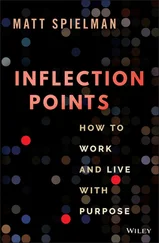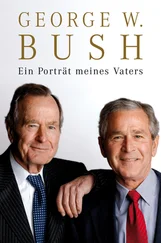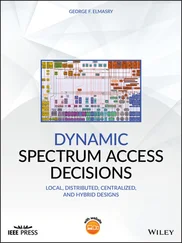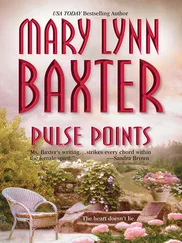I faced an agonizing decision. I could let Scooter go to jail. I could use my power under the Constitution to grant him a pardon. Or I could commute his sentence, meaning his conviction would stand but his prison sentence would not. Some in the White House, led by the vice president, pushed aggressively for a pardon. Their argument was that the investigation should never have proceeded after Fitzgerald had identified Novak’s source. On the other hand, most advisers believed that the jury verdict was correct and should remain in place.
I decided it would send a bad message to pardon a former staff member convicted of obstructing justice, especially after I had instructed the staff to cooperate with the investigation. But the punishment Scooter had received did not fit the crime. The protracted investigation and trial had already caused personal, professional, and financial damage for Scooter and his family. In early July 2007, I announced my decision: “I respect the jury’s verdict. But I have concluded that the prison sentence given to Mr. Libby is excessive. Therefore, I am commuting the portion of Mr. Libby’s sentence that required him to spend thirty months in prison.”
The reaction from the left was blistering. “President Bush’s action today tells America that it’s okay to lie, mislead, and obstruct justice, as long as you are loyal to his administration,” one congressman said. Another said, “I call on House Democrats to reconsider impeachment proceedings.” Not everyone in the White House liked the decision, either. Dick continued to advocate a full pardon.
One of the biggest surprises of my presidency was the flood of pardon requests at the end. I could not believe the number of people who pulled me aside to suggest that a friend or former colleague deserved a pardon. At first I was frustrated. Then I was disgusted. I came to see massive injustice in the system. If you had connections to the president, you could insert your case into the last-minute frenzy. Otherwise, you had to wait for the Justice Department to conduct a review and make a recommendation. In my final weeks in office, I resolved that I would not pardon anyone who went outside the formal channels.
In the closing days of the administration, Dick pressed his case that Scooter should be pardoned. Scooter was a decent man and dedicated public servant, and I understood the ramifications for his family. I asked two trusted lawyers to review the case from top to bottom, including the evidence presented at the trial for and against Scooter. I also authorized them to meet with Scooter to hear his side of the story. After careful analysis, both lawyers told me they could find no justification for overturning the jury’s verdict.
I spent our last weekend at Camp David wrestling with the decision. “Just make up your mind,” Laura told me. “You’re ruining this for everyone.” Ultimately, I reached the same conclusion I had in 2007: The jury verdict should be respected. In one of our final meetings, I informed Dick that I would not issue a pardon. He stared at me with an intense look. “I can’t believe you’re going to leave a soldier on the battlefield,” he said. The comment stung. In eight years, I had never seen Dick like this, or even close to this. I worried that the friendship we had built was about to be severely strained, at best.
A few days later, I talked to another person about the pardon process. On the ride up Pennsylvania Avenue on Inauguration Day, I told Barack Obama about my frustrations with the pardon system. I gave him a suggestion: announce a pardon policy early on, and stick to it.
After President Obama’s Inauguration, Laura and I choppered to Andrews Air Force Base. Our final event before boarding the plane home to Texas was a farewell ceremony in front of three thousand friends, family, and former staff. Dick had agreed to introduce me. He had injured his back moving boxes, so Lynne had to push him onto the stage in a wheelchair. Dick grabbed the microphone. I had no idea what he would say. I hoped he would be able to get past the disappointment he felt. His words were heartfelt and kind: “Eight and a half years ago, I began a partnership with George Bush that has truly been a special honor. … If I have one regret, it is only that these days have ended and that all the members of this fine team, now, must go their own way.”
The man I picked that hot day in July remained steady to the end. Our friendship had survived.
*Arguably, my home state provided an exception in 1960, when John F. Kennedy chose Lyndon Johnson as his running mate. There was no similar benefit in 1988, when Michael Dukakis tapped Texas Senator Lloyd Bentsen.
**I later heard that General Shinseki’s staff had not invited Don to attend. I think he should have gone anyway.
***In 2004, the nonpartisan Butler Report concluded that the statement was “well-founded.”

 n the heart of central London sat a thirty-four-story gray building. One floor contained a large, open space known as the Fertilizing Room. Inside, technicians meticulously mixed eggs and sperm in test tubes to produce the next generation. The hatchery served as the lifeblood of a new world government, which had mastered the formula for engineering a productive and stable society.
n the heart of central London sat a thirty-four-story gray building. One floor contained a large, open space known as the Fertilizing Room. Inside, technicians meticulously mixed eggs and sperm in test tubes to produce the next generation. The hatchery served as the lifeblood of a new world government, which had mastered the formula for engineering a productive and stable society.
That scene was not the creation of Jay Lefkowitz, the bright lawyer reading aloud to me in the Oval Office in 2001. It came from Aldous Huxley’s 1932 novel, Brave New World . With the recent breakthroughs in biotechnology and genetics, the book now seemed chillingly relevant. So did its lesson: For all its efficiency, Huxley’s utopian world seemed sterile, joyless, and empty of meaning. The quest to perfect humanity ended in the loss of humanity.
In April of that same year, another piece of writing turned up in the Oval Office. Describing what she called a “wrenching family journey,” the author urged me to support the “miracle possibilities” of embryonic stem cell research to provide cures for people like her husband, who was suffering from Alzheimer’s. She closed, “Mr. President, I have some personal experience regarding the many decisions you face each day. … I’d be very grateful if you would take my thoughts and prayers into your consideration on this critical issue. Most sincerely, Nancy Reagan.”
The juxtaposition of Mrs. Reagan’s letter and the Huxley novel framed the decision I faced on stem cell research. Many felt the federal government had a responsibility to fund medical research that might help save the lives of people like President Reagan. Others argued that supporting the destruction of human embryos could take us off a moral cliff toward an uncaring society that devalued life. The contrast was stark, and I faced a difficult decision.

“Sometimes our differences run so deep it seems we share a continent, but not a country,” I said in my Inaugural Address on January 20, 2001. “We do not accept this, and we will not allow it. Our unity, our union, is the serious work of leaders and citizens in every generation. And this is my solemn pledge: I will work to build a single nation of justice and opportunity.”
After a luncheon with dignitaries at the Capitol, Laura and I made our way to the White House as part of the official Inaugural parade. Pennsylvania Avenue was lined by well-wishers, along with a few pockets of protesters. They carried big signs with foul language, hurled eggs at the motorcade, and screamed at the top of their lungs. I spent most of the ride in the presidential limo behind thick glass windows, so their shouting came across in pantomime. While I couldn’t make out their words, their middle fingers spoke loudly: The bitterness of the 2000 election was not going away anytime soon.
Читать дальше


 n the heart of central London sat a thirty-four-story gray building. One floor contained a large, open space known as the Fertilizing Room. Inside, technicians meticulously mixed eggs and sperm in test tubes to produce the next generation. The hatchery served as the lifeblood of a new world government, which had mastered the formula for engineering a productive and stable society.
n the heart of central London sat a thirty-four-story gray building. One floor contained a large, open space known as the Fertilizing Room. Inside, technicians meticulously mixed eggs and sperm in test tubes to produce the next generation. The hatchery served as the lifeblood of a new world government, which had mastered the formula for engineering a productive and stable society.










